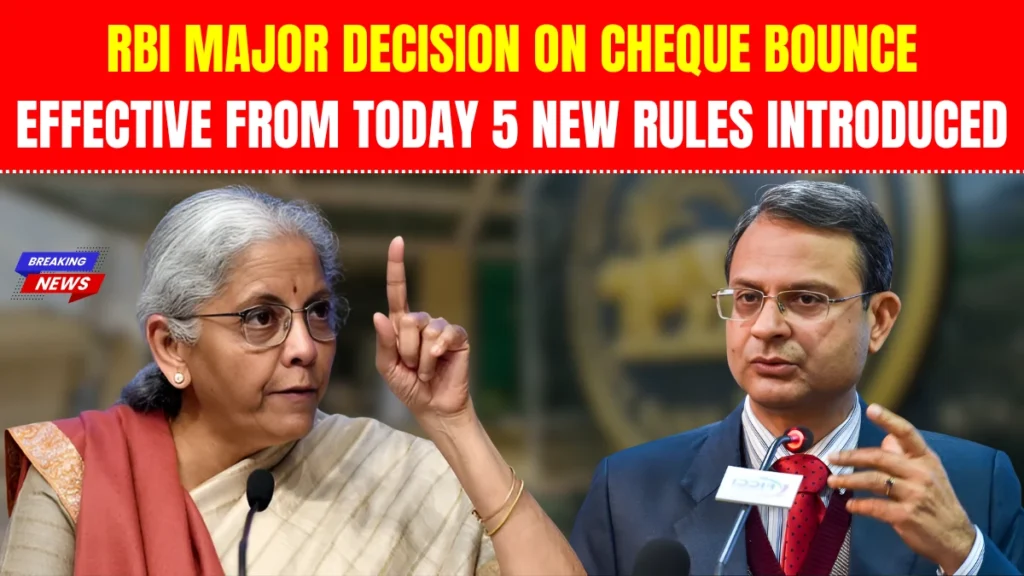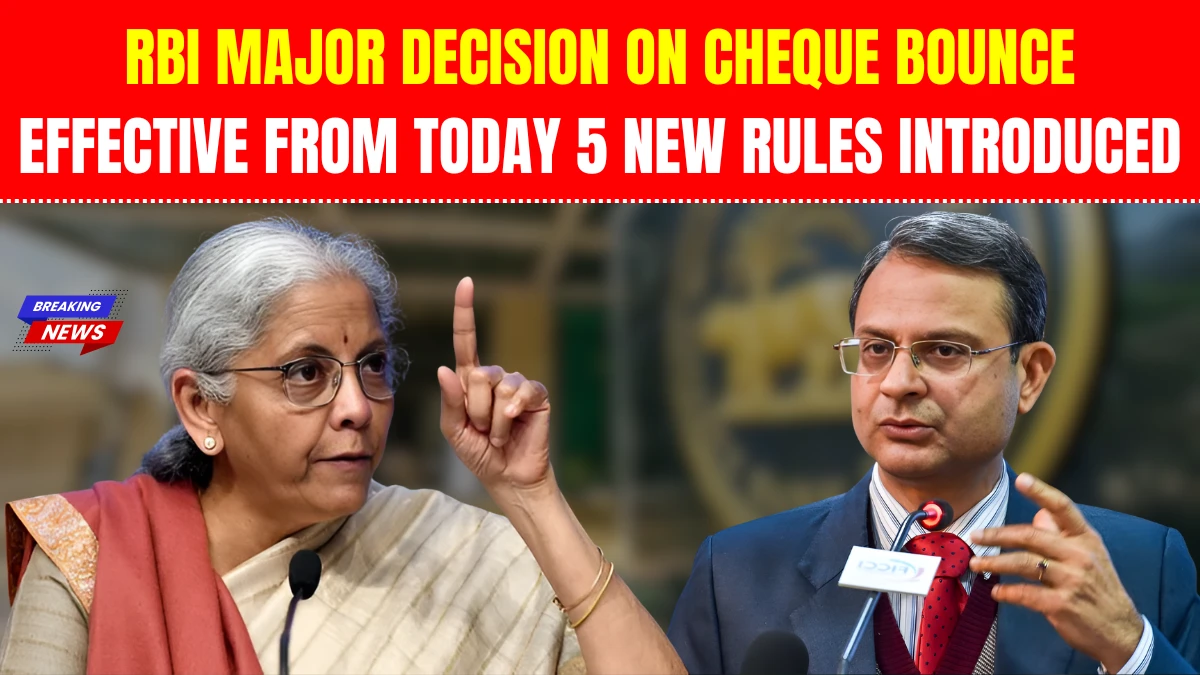Starting today, the Reserve Bank of India (RBI) has implemented significant changes in how cheque bounce cases are handled. These new rules aim to streamline the process and reduce delays that often arise in such disputes. The RBI, being the apex banking regulator, frequently updates policies to ensure better financial discipline and consumer protection. The latest changes are designed to regulate cheque bounce cases more effectively and bring clarity to all parties involved.

What Is Cheque Bounce?
A cheque bounce occurs when a cheque is presented for payment but the bank refuses to honor it due to insufficient funds, signature mismatch, or other technical reasons. This often leads to legal complications for the drawer of the cheque and inconveniences for the payee. Cheque bounce cases have been a common source of financial disputes in India, affecting individuals and businesses alike. Hence, regulating the handling of these cases is essential for maintaining trust in banking transactions.
Why RBI Changed The Rules
The primary reason behind these new rules is to enhance the accountability and speed of resolving cheque bounce issues. Previously, cheque bounce cases could drag on for months or even years, causing frustration and financial strain. The RBI recognized the need for a more efficient mechanism that protects the rights of the payee while ensuring fair treatment for the drawer. By introducing clear guidelines and timelines, the regulator aims to reduce the backlog of cases and improve overall banking discipline.
Five New Regulations Explained
The RBI has rolled out five major regulations that banks and financial institutions must follow starting today. These changes include stricter timelines for reporting bounced cheques, more transparency in communication between banks and customers, and clearer procedures for dispute resolution. Banks are now required to notify the cheque issuer promptly, giving them a fair chance to rectify the situation before legal action is initiated. This prevents unnecessary escalation and promotes dialogue between parties.
Impact On Banks And Customers
For banks, these rules mean increased responsibility to handle cheque bounce cases efficiently and transparently. They must ensure all notifications and processes adhere to the stipulated guidelines to avoid penalties. For customers, this provides more clarity and protection, reducing the chances of sudden legal notices or surprises. Payees can expect faster resolution and better chances of recovering their dues. Meanwhile, cheque issuers are encouraged to maintain adequate funds and communicate promptly in case of issues.
How The Rules Help Economy
A smoother and quicker resolution of cheque bounce cases boosts confidence in the financial system. It encourages people to use cheques as a safe mode of payment without fearing prolonged disputes. Efficient handling of such cases also reduces pressure on courts and legal bodies. This contributes to a healthier credit environment, helping businesses and individuals maintain better financial discipline. Overall, these rules support economic stability by reinforcing trust in banking transactions.
Challenges In Implementing Rules
Despite the benefits, implementing these new regulations may come with some initial challenges. Banks need to update their processes and train staff accordingly, which could take time. Customers must also be aware of the changes to fully benefit from them. Some may find it difficult to adjust to the stricter timelines and requirements. However, with consistent efforts and communication, these challenges can be overcome, leading to long-term advantages for the entire banking ecosystem.
What Customers Should Know
Customers should familiarize themselves with the new rules to avoid surprises if their cheque bounces. It is important to maintain clear communication with the bank and the payee in case of any issues. Keeping track of cheque statuses and promptly responding to notifications can help resolve matters quickly. Additionally, customers should ensure that sufficient funds are available before issuing cheques to prevent bounce cases altogether. Being proactive will save time, money, and stress in the long run.
Looking Ahead For Banking
These new RBI regulations mark an important step toward more responsible banking and financial discipline in India. By regulating cheque bounce cases more strictly, the RBI is encouraging a culture of accountability and prompt resolution. This could pave the way for future reforms aimed at further enhancing banking practices. As customers and banks adapt to these changes, the overall trust and efficiency in financial transactions are likely to improve, benefiting the economy at large.
Conclusion On RBI Rules
The RBI’s decision to introduce five new rules for cheque bounce cases is a welcome move for the banking sector and consumers alike. It promises quicker dispute resolution, greater transparency, and stronger protection for all parties involved. While there may be some initial adjustments, the long-term benefits are clear. These regulations will help create a more disciplined and reliable financial environment, encouraging responsible cheque usage and reducing delays in settling disputes.
Disclaimer
The information provided in this blog is for general informational purposes only and does not constitute legal or financial advice. Readers are encouraged to consult with qualified professionals or official sources for specific guidance related to cheque bounce cases and RBI regulations. The author and publisher are not responsible for any actions taken based on the content of this post.
